New Liquor Control and Licensing Act and Regulations
February 17, 2017 | by Dennis Coates QC
On January 23, 2017 a new Liquor Control and Licensing Act and Regulations will come into effect . These are substantially a follow through to the BC Liquor Policy Review Final Report prepared by the John Yap as Parliamentary Secretary to the Attorney General dated July 31, 2014.
There were 73 recommendations in the report and in excess of 50 have been implemented.
The new Act and regulations are intended to consolidate the many changes that have been made over the last two and a half years and to modernize many aspects of the operation of the Liquor Control and Licensing Branch in accordance with the intent of this policy review.
Some of the more important changes were contained in Policy Directives 16 – 14 through 16-19 which were issued by the Branch on October 20, 2016. At the same time, the new regulations in whole were deposited and available to the public and industry.
The purpose of this early release was to allow industry to become familiar with the new changes so as to ease the transition on January 23, 2017.
The General Manager of the Liquor Control and Licensing Branch, Doug Scott and the Assistant General Manager, Suzanne Bell are to be commended for this consultative approach to the changes.
General changes to Licensees
- On a license transfer the new owner of the license is responsible for any issues with respect to the license on submission of a complete transfer. Formerly, it was the former owner which caused issues during the transfer period at the Liquor Branch.
- The requirement for a resident manager has been removed. There is a process of appointing a representative for specified duties and this should probably be filed by most licensees. There is no cost for filing an authorization.
- Minors i.e. less than 10% share transactions in a licensee need not be reported to the Liquor Branch.
- Serving it Right is no longer required for licensing but is required for all parties working in the establishment.
- Local Government approval allows local Government to authorize staff to make recommendations rather than a formal council resolution. Great improvement.
- Dormant licenses – very important – There will be a two year time limit on dormancy and any current dormant license must either leave dormancy or request an extension by January 2019.
Food Primary & Catering
- Liquor service hours can be extended by the Liquor Branch without local government input in certain circumstances.
- License changes must now be reported within specified time.
- Hotel guests are permitted to take drinks from licensed areas to their rooms through unlicensed areas.
- Dual licensing is now allowed again – i.e. a licensee can have a Food Primary operation during the day and Liquor Primary operation at night.
- Banquet rooms can now allow patrons to bring their own wine into licensed areas. This should be a positive for many wedding events in hotels.
- Establishments without a primary focus on food may obtain a Liquor Primary license i.e. barbershops or bookstores or spas.
- Caterers including Food Primary and Liquor Primary operators with a catering endorsement can store alcohol off site but must file the LCLB form designating where it is stored.
Liquor Primary
- Allows Liquor Primary licenses to relocate anywhere in the Province and not just in the local neighbourhood.
- Allows hotels to serve guests a complimentary drink at check in.
- Requirement to notify the Liquor Branch of any “liquor free event” that ends after 8:00 p.m. 14 days in advance on line.
- Normal non-Liquor Primary facilities such as cooking schools and art galleries can apply for a Liquor Primary Licence.
- Liquor Primary who have off sales endorsement can deliver.
- Concert halls and live entertainment facilities can now allow minors into events and serve alcohol. In the past some facilities were allowed and some were not such as the Queen Elizabeth Theatre in Vancouver.
- Process for applications for Liquor Primary licenses will now allow local Government and the Liquor Branch to process the applications at the same time which will speed up approval process.
- There are provisions to allow minors in licensed recreational facilities after 10:00 p.m. however, specific conditions apply.
- Golf courses can allow drinks to move from one area to another. The issue will revolve around defining service areas i.e. practice areas for putting and driving ranges which are part of course.
Manufacturer and Agency Matters
- Manufacturer agency licenses are no longer required unless selling outside BC.
- Winery production must meet minimum 4500 litres produced on site.
- Contract manufacturing is allowed.
- Person capacities for Special Event Areas are required for new applications or when amending current endorsement area.
- Tasting event products either opened or unopened can be used for future tastings.
- Liquor production at research or educational facilities does not require a license. There are currently several universities that offer training and education courses.
- The privilege for manufacturers lounges to sell up to 20% of their volume with product that was not manufactured is confirmed.
Special Event Permit – replaces the Special Occasion License
- This new initiative allows businesses to run separate events and simply identify the non- profit or charitable organization that will benefit.
- Left over product does not need to be returned but can be “given away” at end of event.
- Compliance and Enforcement
- Some of the important changes allow a licensee to elect on first offence between a suspension and a monetary fine.
- Allows the Branch to reconsider decisions on specified grounds rather then have to apply for a Judicial Review which is very time consuming and very expensive.
- If an appeal of an enforcement matter does require a Judicial Review, it must be commenced within 30 days.
- One disappointment is the continuance of the prescribed penalty schedule and the inability for an Adjudicator to differentiate between good operators and bad operators.
Lastly, licensees are reminded of the requirement to retain all records for six years. This was the rule under current regulation 34 and continues under new regulation 80. It seems excessive and includes all liquor and sales records, plus employee and incident reports.
Dennis P. Coates, Q.C.
Share this article:
Get your interests represented
As one of the largest law firms in the Interior, our lawyers have a broad range of specializations, ensuring that we have the experience to competently and professionally represent you.

